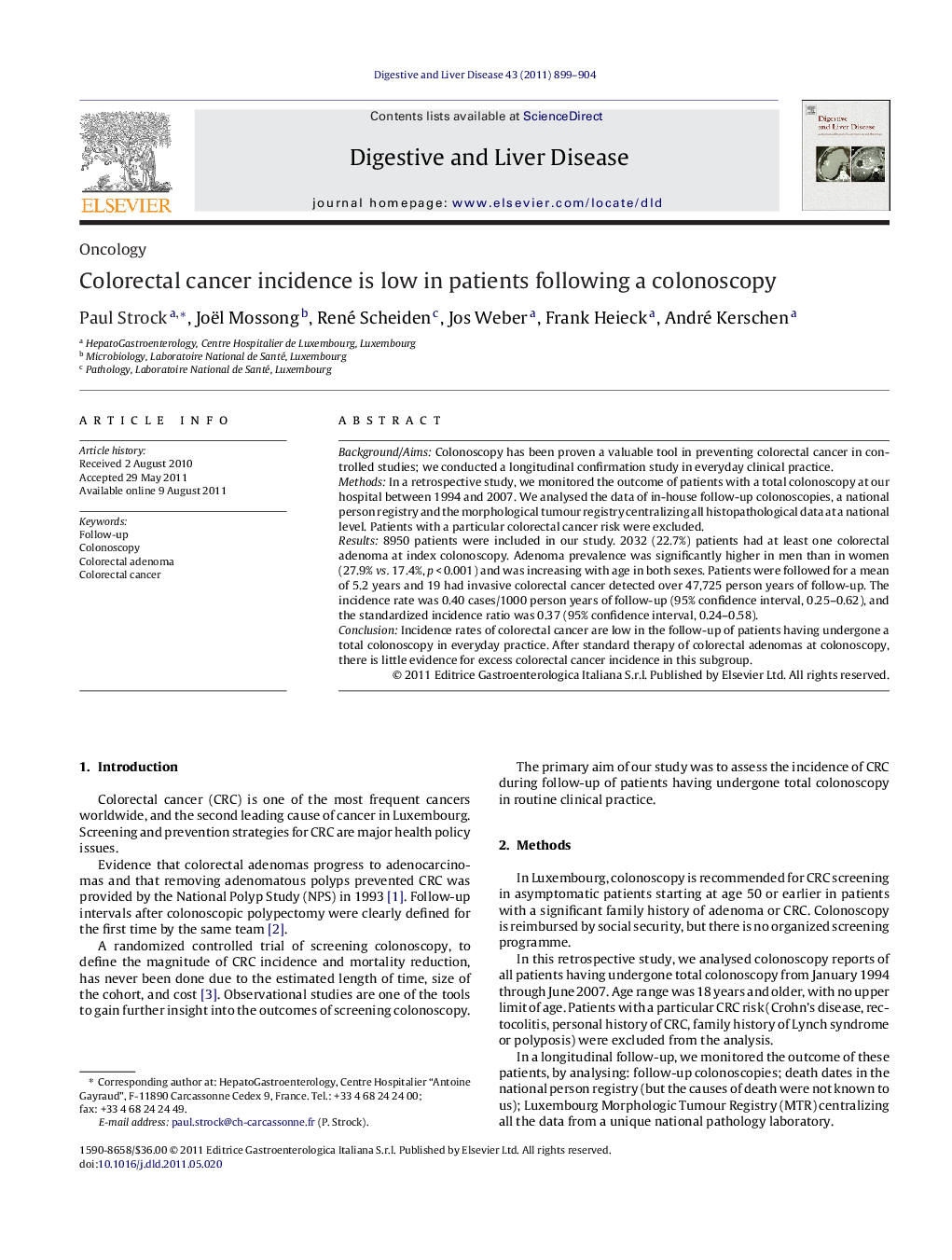| Article ID | Journal | Published Year | Pages | File Type |
|---|---|---|---|---|
| 3262831 | Digestive and Liver Disease | 2011 | 6 Pages |
Background/AimsColonoscopy has been proven a valuable tool in preventing colorectal cancer in controlled studies; we conducted a longitudinal confirmation study in everyday clinical practice.MethodsIn a retrospective study, we monitored the outcome of patients with a total colonoscopy at our hospital between 1994 and 2007. We analysed the data of in-house follow-up colonoscopies, a national person registry and the morphological tumour registry centralizing all histopathological data at a national level. Patients with a particular colorectal cancer risk were excluded.Results8950 patients were included in our study. 2032 (22.7%) patients had at least one colorectal adenoma at index colonoscopy. Adenoma prevalence was significantly higher in men than in women (27.9% vs. 17.4%, p < 0.001) and was increasing with age in both sexes. Patients were followed for a mean of 5.2 years and 19 had invasive colorectal cancer detected over 47,725 person years of follow-up. The incidence rate was 0.40 cases/1000 person years of follow-up (95% confidence interval, 0.25–0.62), and the standardized incidence ratio was 0.37 (95% confidence interval, 0.24–0.58).ConclusionIncidence rates of colorectal cancer are low in the follow-up of patients having undergone a total colonoscopy in everyday practice. After standard therapy of colorectal adenomas at colonoscopy, there is little evidence for excess colorectal cancer incidence in this subgroup.
